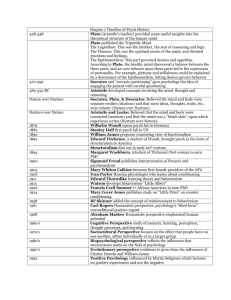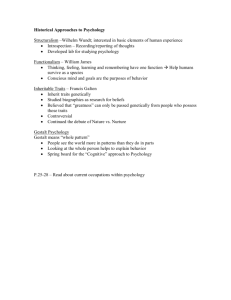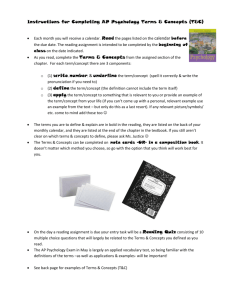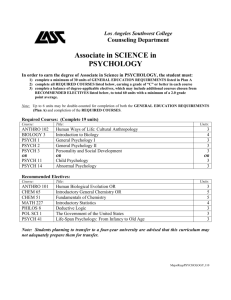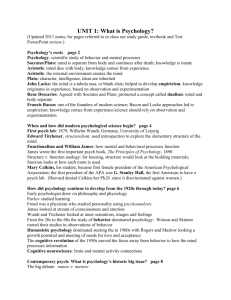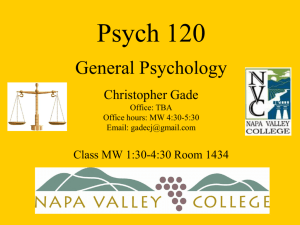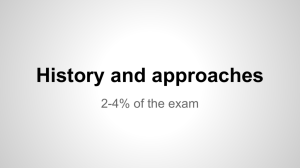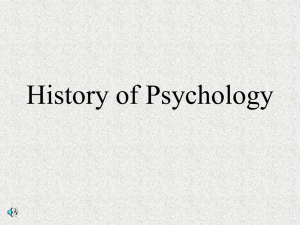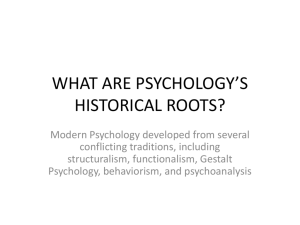AP Psych Prologue PowerPoint
advertisement
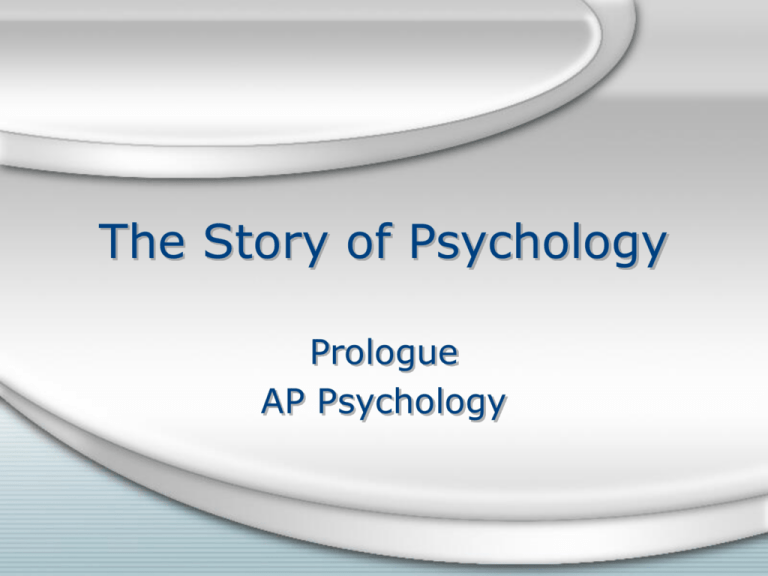
The Story of Psychology Prologue AP Psychology Aristotles’s Early Theories • “the soul is not separate from the body…” • Knowledge is not preexisting, but grows from the experiences stored in our memories. Decartes & Locke w/ a side order of Bacon • Locke agreed with Bacon & argued that the mind was a blank slate at birth. • Empiricism is started Dr. Wilhelm Wundt • Father of modern pscyh. (Leipzig, Germany 1879) • First to perform psych. Experiments • Opened first psych. Lab Dr. Edward Bradford Titchener • Student of Dr. Wundt • Introduced Structuralism in 1892. Structuralism • Goal-discovery of the structural elements of the mind • Method(s) -introspection & training Structuralism’s Weakness • Relied on smart & verbal people • Unreliable due to varying results w/different people • People don’t know why we feel they way we do • People’s recollections err & selfanalysis inconclusive Dr. William James • Introduced Functionalism • Strongly influenced by Darwin • “Principles of Psych.” • Admitted the first women into his psychology classes Functionalism’s Focus • The evolved functions of our thoughts & feelings • How the function of mental & behavioral processes enable us to adapt, survive, & flourish Mary Calkins • 1st female psych. Grad student • Denied PHD @ Harvard • 1st female APA (American Psychological Association) president, 1905 Dr. Margaret Floy Washburn • 1st female PHD • “The Animal Mind” • 2nd female APA president Early Psychology (pre1920’s) • “the science of mental life” • Wundt & Titchener =inner sensations, images, & feelings • James= introspection of the consciousness & emotion Freud’s Focus • The ways emotional responses to childhood experiences & our unconscious thoughts affect our behavior. Psychology 1920’s into 1960’s • Dominated by Behaviorists • John B. Watson & BF Skinner • “the scientific study of observable behavior” 1960’s & Beyond • Humanistic Psych. Focused on importance of environmental influences on human growth potential • Abraham Maslow & Carl Rogers • Cognitive neuroscience- refocused on how the mind perceives, processes & retains info What is Psychology? • Psychology is the scientific study of behavior & mental processes. • “Psychology” has its roots in the Greek words “psyche”, or mind & “-ology”, or a field of study Definition Breakdown • Behavior- any action that can be observed or recorded • Mental processes- the internal, subjective experiences we infer from behavior such as; sensations, perceptions, dreams, thoughts, beliefs ,& feelings • **The science of psychology is less a set of findings than away of asking & answering questions***
